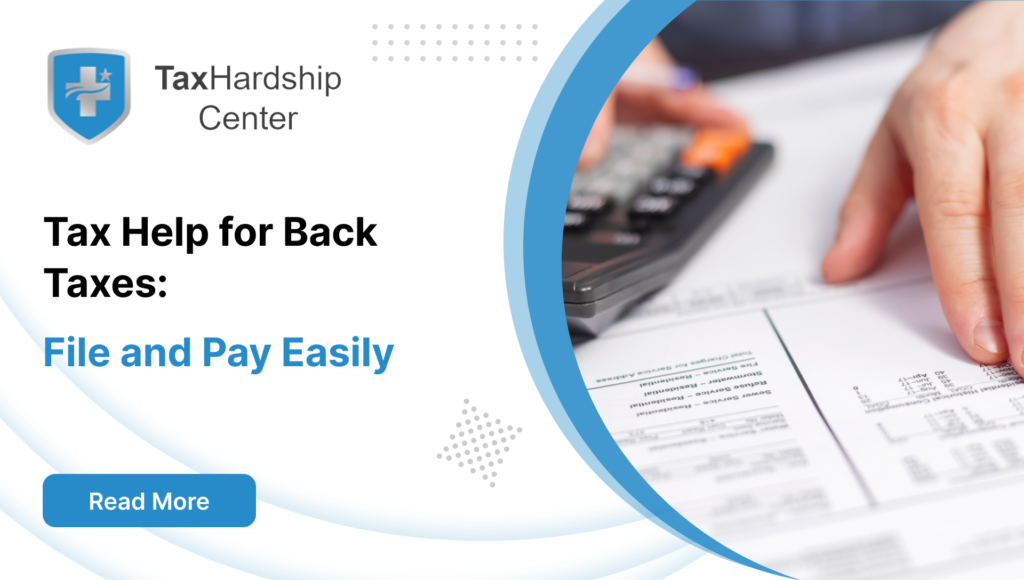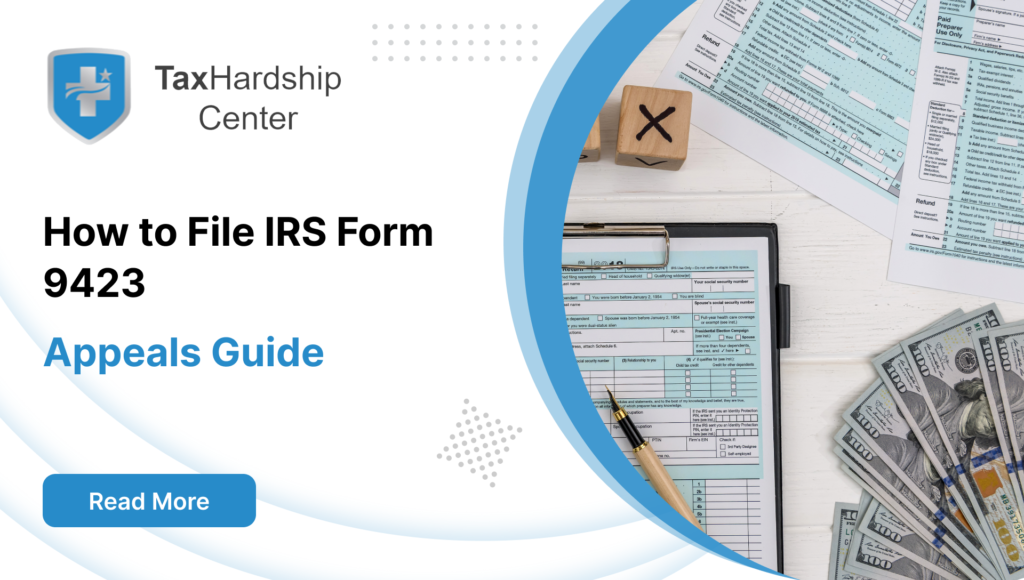The Government of the United States offers vital financial support to individuals and businesses who fail to pay taxes to the government under The IRS Debt Forgiveness Program, officially known as the Internal Revenue Service (IRS) Fresh Start Initiative. Within this program, a range of tax relief options are available, all to mitigate financial pressure while helping them meet their tax duties.
It is impossible to understate the importance of the IRS Debt Forgiveness Program. It is a crucial mechanism for taxpayers who might be financially constrained and have encountered unexpected challenges that have made them incapable of fulfilling their obligations. This program provides a formal platform through which individuals and firms defaulting on debts can revive their financial stability, avoid harsh penalties arising from tax obligations, and restore their monetary well-being.
In this article, we will delve deeper into the various IRS Debt Forgiveness Programs, Qualifications and Eligibility Requirements for IRS Debt Forgiveness Programs, Effective negotiations with the IRS, and consequences of tax debt. By understanding these programs, taxpayers can make informed decisions toward financial stability and explore the possibilities of being debt-free.
Varieties of IRS Debt Forgiveness Programs
1. Offer in Compromise (OIC):
Offer in Compromise is a program that enables taxpayers to pay less than they owe to the government. Offer in Compromise is a lifesaver for people who cannot pay their debts and require some concessions for a new financial beginning.
2. Innocent Spouse Relief:
Innocent Spouse Relief assists individuals unfairly being held responsible for their spouse’s or ex-spouse’s tax debts. It protects innocent spouse’s monetary interests by ensuring that they do not suffer from other spouses’ tax liabilities.
3. Currently Not Collectible (CNC) Status:
Taxpayers can avoid IRS collections during CNC when they cannot pay taxes in case they are unemployed or sick. This relief option is necessary for persons who are struggling financially because it gives them room to regain their financial standing without facing economic challenges.
Diving Deeper into Various IRS Debt Forgiveness Programs:
1. Offer in Compromise (OIC) Program:
The Internal Revenue Service (IRS) manages the Offer in Compromise (OIC) program. The OIC serves as a lifeline for taxpayers. This initiative enables individuals and businesses to settle their tax dues for less than what they owe the government.
OIC runs by evaluating the revenue generation capability (income), expenditure analysis, value in case of assets, and future prospective earnings power. If the tax debt exceeds what the taxpayer can afford, the IRS may consider a partial payment amount as the full payment.
In addition, the application procedure of the OIC is complex, as it requires extensive financial information. However, it provides numerous economic benefits if you are eligible for it. The OIC offers a route to a new start for paying off the burden of overbearing taxes, which allows taxpayers to re-establish a firm ground in their finances Understanding the intricacies of the OIC makes it possible for people and business entities to look at this pathway to reducing their debt burden with success.
2. Innocent Spouse Relief Program:
Innocent Spouse Relief is an essential provision under IRS debt forgiveness programs to protect spouses and former spouses from unfair financial obligations resulting from their ex-spouse’s or spouses’ tax indebtedness. It acknowledges that a partner can be ignorant about or have no contribution to specific transactions, leading to tax debt.
To meet the criteria of Innocent Spouse Relief, applicants should prove that they have no part in the mentioned tax debts and are unaware of their spouses’ underreporting of their income or performing any illegal procedures concerning taxes.
The Innocent Spouse Relief program serves as a way of saving innocent people from the profound implications of not paying their respective tax liabilities. Therefore, they are neither liable to bear the financial responsibility, offering them peace of mind. The Innocent spouse relief is provided to individuals trapped in a tax debt they did not cause or instigate, allowing them to break away from their spouse’s tax problems and start afresh with a clean financial state.
3. Currently Not Collectible (CNC) Status:
Currently, Not Collectible is a critical relief avenue relief program offered by the IRS to individuals and businesses facing financial crises. CNC provides an interim suspension of IRS collection activities, including attachment of wages to prevent levy, seizure of funds in the account, and taking possessions.
Taxpayers who want to qualify for CNC status should prove that the payment of the Tax debt will cause severe economic hardship, failing to afford essential living expenditures. To establish the eligibility of the CNC, the Internal Revenue Service examines their overall financial circumstances based on factors such as assets, income, and expenses.
The respite of CNC status is essential as it offers much-needed relief in difficult times of financial stress. CNC is not an erasure of tax debt. Still, it provides brief relief from the IRS collection affairs to individuals and companies, enabling them to balance finances and pay back taxes. CNC Status is a crucial safety program that prevents taxpayers from sinking deeper into financial burdens while helping them address their economic challenges.
Qualifications and Eligibility Requirements for IRS Debt Forgiveness Programs
Meeting the eligibility requirements for IRS debt forgiveness programs depends on various factors, and an individual must have a clear understanding of the criteria. While the precise criteria may vary according to the program, the following are three fundamental aspects:
Financial Hardship Evaluation:
Generally, when people show financial distress, making them unable to pay the entire amount of taxes would lead to adverse outcomes. The IRS looks into whether a taxpayer has sufficient income, appropriate living expenses, and enough property to determine whether an individual is liable to pay taxes or not.
Tax Compliance:
Mostly, individuals applying for debt forgiveness are expected to comply with their existing tax obligations This includes filing all tax returns on time and ensuring that withholding or estimated taxes are paid promptly. Non-compliance can have an impact on one’s eligibility.
Debt Amount:
Individuals should be well aware of the amount of tax debt hanging over them. However, some programs set a particular cap on forgivable debt. Taxpayers should check whether their debts fall within the acceptable limits of the program.
Effective Negotiation with the IRS: Strategies and Counsel
Negotiating with the Internal Revenue Service (IRS) demands a strategic approach to resolve tax issues efficiently.
Thorough Documentation:
It is essential to have detailed and accurate documentation in all financial records, such as revenue, expenditures, assets, etc. This leads to fair negotiation with exact figures.
Open Communication:
One should communicate openly and honestly with the IRS. Responding promptly to IRS queries and providing necessary information develops trust and facilitates the settlement process.
Professional Assistance:
Seeking professional help from experienced tax attorneys and enrolled agents can be beneficial when tackling challenging or controversial tax issues. Specialist experience might help you achieve better results and save you from potential downfalls.
Offer in Compromise (OIC):
If eligible, The OIC offers numerous tax reliefs that can significantly reduce your tax liability and give you a fresh financial start.
Instalment Agreements:
Consider creating installment arrangements, which enable an individual to pay in manageable portions to reduce the amount of money that you will have to give out at once, easing your financial burden.
Consequences of Tax Debt
The far-reaching effects of tax debts are not merely financial ramifications but far beyond. The awareness of the detrimental effects alerts taxpayers on what could happen if they decide not to pay taxes, enabling them to avoid unpleasant consequences.
Impact on Creditworthiness:
Unpaid taxes may cause substantial decay in one’s credit rating, thus making it quite challenging to acquire loans and access credit cards in the future.
Salary Seizure:
The IRS can withhold a proportion of an individual’s salary (garnishment) and use it to pay the outstanding taxes, cutting net income.
Bank Account Seizures:
Failure by a firm to pay its tax debt may result in the seizure of the company’s bank accounts, blocking assets and disrupting its finances.
Tax Lien Imposition:
The inability to pay taxes may result in a tax lien on assets, thus hampering one’s ability to sell or refinance their property.
Legal Measures:
Failure to address extended tax issues often leads to lawsuits, including seizure of property and potential prosecution.
Final Overview
Therefore, IRS debt forgiveness programs such as Offer in Compromise, Innocent Spouse Relief, and CNC are crucial lifelines that rescue individuals and businesses with unpaid taxes. Such programs are essential in helping taxpayers deal with tax bill payments, avoid serious ramifications due to overdue payments, and restore financial stability.
It is also essential to understand the requirements and eligibility criteria of relief programs to reach the intended beneficiaries. By understanding the various facets of IRS Debt forgiveness programs and utilizing efficient negotiation approaches, individuals can ensure their financial security and work towards a debt-free future.








